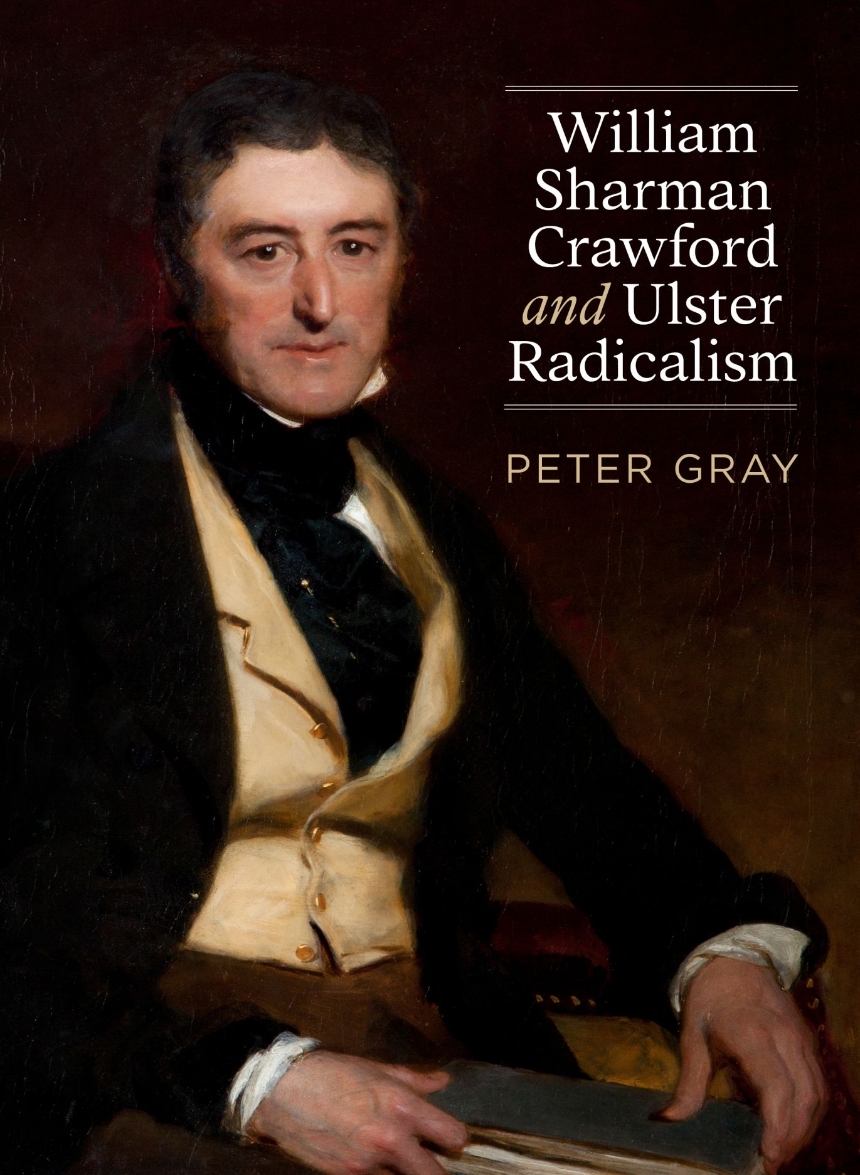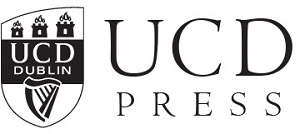Distributed for University College Dublin Press
William Sharman Crawford and Ulster Radicalism
Exploring both his life and legacy, the first full biography of William Sharman Crawford, the leading agrarian and democratic radical active in Ulster politics between the early 1830s and the 1850s.
This biography places the life and ideas of William Sharman Crawford in the context of the development of radical liberalism in Ulster province over a more extended period, from his father’s involvement in the Volunteers in the era of the American and French revolutions, through William’s own leadership in Irish and British radical reform movements, including the Repeal Association, Chartism, and the Tenant League. It explores his attempts to reconcile Irish patriotism with the existence of the Union through the concept of “federalism,” his efforts to act as an “ideal landlord” in the face of agrarian unrest and famine, and his deep commitment to attaining land and welfare reforms that he believed would empower both tenant farmers and the laboring poor.
William Sharman Crawford and Ulster Radicalism traces the legacy of his politics through the political careers of his children James in Gladstonian liberalism and Mabel in the women’s suffrage movement, both of whom sought, in common with Presbyterian allies such as James McKnight, to carry his ideas into the later nineteenth century. It concludes with the collapse of the family’s radical tradition in the following generation, as his grandson Robert Gordon came to reject liberal unionism and take an active role in the Ulster Unionist movement from the 1890s.
Through an assessment of the Sharman Crawford family over four generations, William Sharman Crawford and Ulster Radicalism explores the resilience of the Ulster Protestant radical tradition in the wake of the setbacks of 1798, its strengths and weaknesses, and its relations with Irish Catholic nationalism, British radicalism, the conservative landed, and Orange traditions within Ulster.
This biography places the life and ideas of William Sharman Crawford in the context of the development of radical liberalism in Ulster province over a more extended period, from his father’s involvement in the Volunteers in the era of the American and French revolutions, through William’s own leadership in Irish and British radical reform movements, including the Repeal Association, Chartism, and the Tenant League. It explores his attempts to reconcile Irish patriotism with the existence of the Union through the concept of “federalism,” his efforts to act as an “ideal landlord” in the face of agrarian unrest and famine, and his deep commitment to attaining land and welfare reforms that he believed would empower both tenant farmers and the laboring poor.
William Sharman Crawford and Ulster Radicalism traces the legacy of his politics through the political careers of his children James in Gladstonian liberalism and Mabel in the women’s suffrage movement, both of whom sought, in common with Presbyterian allies such as James McKnight, to carry his ideas into the later nineteenth century. It concludes with the collapse of the family’s radical tradition in the following generation, as his grandson Robert Gordon came to reject liberal unionism and take an active role in the Ulster Unionist movement from the 1890s.
Through an assessment of the Sharman Crawford family over four generations, William Sharman Crawford and Ulster Radicalism explores the resilience of the Ulster Protestant radical tradition in the wake of the setbacks of 1798, its strengths and weaknesses, and its relations with Irish Catholic nationalism, British radicalism, the conservative landed, and Orange traditions within Ulster.
Table of Contents
List of illustrations; Acknowledgements; Abbreviations; Sharman Crawford Family Tree; Introduction; 1. William Sharman and the politics of Volunteering, 1731–1803; William Sharman of Lisburn and Moira; The Volunteers and Colonel Sharman; The Dungannon conventions and parliamentary reform; Belfast politics and the French Revolution; The shock of 1798; 2. The making of an Ulster radical, William Sharman Crawford, 1780–1832; Youth and formation; Marriage and inheritance; Political initiation: the Down election of 1830; Down again: the election of 1831; The Belfast election of 1832; Sharman Crawford’s radicalism; 3. O’Connellism, repeal and the national question, 1832–41; Approaching repeal, 1833–4; Dundalk politics, 1834–6; An Irish poor law, 1835–8; Opening the feud with O’Connell, 1836–7; Expulsion from Dundalk, 1837; ‘Precursors’ and ‘Crawfordites’, 1838–40; The Ulster Constitutional Association, 1840–1; 4. Chartism, federalism and Rochdale politics, 1837–52; The People’s Charter; Rochdale politics, 1838–41; Universal suffrage, 1841–2; Petitions and obstruction, 1842–4; Federalism and the Irish question, 1843–8; Rochdale politics, 1845–52; 5. Landlordism, agrarian reform and Irish famine, 1827–50; Agrarian practice and theory; The development of the tenant-right bill, 1835–7; A Defence of the Small Farmers of Ireland, 1837–45; Response to the Famine, 1845–9; Depopulation Not Necessary, 1849–50; 6. The emergence of the Tenant League, 1846–50; The origins of agrarian politics, 1846–7; The 1847 elections, Holy Cross and after; Defeated revolutions, 1848–9; Forming the ‘League of North and South’, 1849–50; 7. The ‘League of North and South’, 1850–61; Tensions and compromises: the Tenant League, 1850–1; The 1852 session; ‘A battle like Waterloo’: the County Down election of 1852; Disintegration and division, 1852–5; The end of tenant right? 1855–61; 8. Family, reform and religion, 1844–61; The Sharman Crawfords of Crawfordsburn; Empire, armies and reform; Religion and the conversion to Unitarianism; Death and commemoration; 9. Legacy and succession: the Sharman Crawfords after 1861; The shade of Sharman Crawford and Irish land reform, 1861–70; James Sharman Crawford and Co. Down politics, 1861–85; Mabel Sharman Crawford and the rights of women, 1852–1912; The end of Crawfordsburn radicalism, 1891–1934; Conclusion; Bibliography

